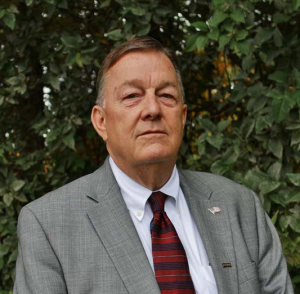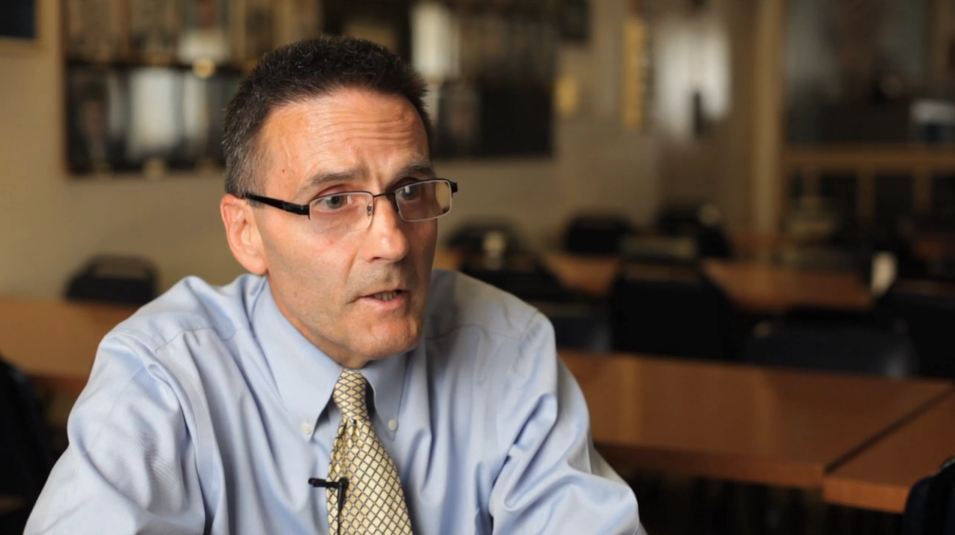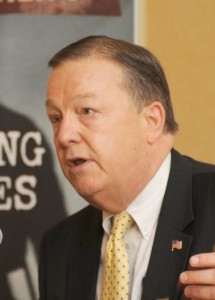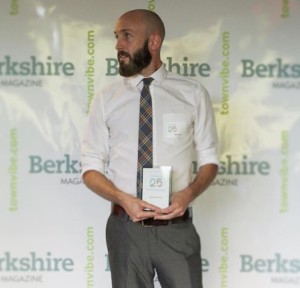All posts by Collin Flynn
Soldier On Receives $300,000 To Provide Services For Formerly Incarcerated Veterans
The federal Department of Labor has awarded a $300,000 grant to Soldier On to provide employment and housing services to formerly incarcerated veterans in Eastern New York and Western Massachusetts.
DOL announced the award as part of $1.8 million in grants it funded nationally under its Incarcerated Veterans Transition Program, which targets those veterans considered at risk of becoming homeless.
“Everyone deserves a second chance, especially the men and women who have sacrificed for our country,” said U.S. Secretary of Labor Thomas E. Perez. “The Incarcerated Veterans Transition Program opens doors for veterans who may have struggled but who want to return to America’s workforce.”
Soldier On currently serves 18 counties in Eastern New York and four counties in Western Massachusetts, largely through its Supportive Services for Veteran Families grant program from the Department of Veterans Affairs. It also provides 40 hours of weekly programming at the Albany (NY) County Correctional Facility aimed at reducing recidivism and preparing veterans to assimilate back into society. The DOL grant will enhance services to these veterans and others who are released from imprisonment and who are located in Eastern New York and Western Massachusetts.
Soldier On initiated its incarcerated veterans program at the Albany jail in October 2014 in collaboration with Sheriff Craig D. Apple. Programming includes instruction in appropriate disciplines, such as anger management, physical and mental health, substance abuse, self-discipline, and social skills.
“This DOL grant will allow Soldier On, the Albany County Sheriff’s Department, and our outreach team in Western Massachusetts and Eastern New York to provide job training, education and job readiness for veterans who are leaving incarceration and returning to life in the community,” said John F. Downing, CEO of Soldier On. “We are grateful to the DOL to allow us to partner with them to serve this special group of veterans with these services.”
“Honoring the sacrifice and service of our nation’s veterans starts with helping them succeed when they return home,” Congressman Jim McGovern (MA-02) said. “With this program, struggling veterans will get the second chance they need as they work to get back on their feet. Giving our veterans the support they need to find a good job and put a roof over their head is the least we can do. This program will make a tremendous difference for veterans in our communities and across the country. I am proud to join Secretary Perez as a partner in this important work and look forward to seeing all the good these grants will do for our veterans.”
Opinion: Rethinking The Delivery Of Veterans’ Benefits – By John F. Downing
With the Department of Veterans Affairs slowly imploding financially, and burdened with a bloated bureaucracy capable of serving only about one third of our veterans, it is time for new ideas and new systems to ensure all our veterans get the care and benefits they have earned. To accomplish this, access to benefits and health care needs to be improved.
In its struggle to achieve financial stability with a looming $3 billion shortfall, the VA has been shifting funds and cutting back on expenses while warning Congress that the demand for services will continue to climb as it has during the past year. Much of the increased demand is being driven by the cost of outside doctors, which veterans can now choose to see through the new “”Veterans Choice Program” if they cannot get a VA appointment within 30 days.
Accordingly, the VA says its waiting lists of one month or more have increased by 50 percent over the last year when the problems plaguing the agency first came to light. The VA has hired more doctors and nurses and expanded access to care, but the number of veterans seeking care has multiplied beyond expectations.
We are seeing that throwing taxpayer funds at an agency with a bloated bureaucracy won’t work. I believe we have to simplify the process and work together with the VA and other agencies in easing access to benefits and health care so that we can reach 100 percent of our veterans. One solution is a computerized benefit card that allows every veteran to have all benefits and health needs listed in one account.
At Soldier On, when a case manager goes out into the community to meet with a homeless veteran, one of the first things they do to begin the road to permanent housing is to ensure that the veteran has applied for and is receiving all due benefits. If not, it can be a cumbersome and time-consuming process going agency to agency with the veteran to register. But it needs to be done because it is a necessary step to ensure that our veterans are able to get the services they need so they can get back on their feet for good.
With an automated benefit card, every veteran who files with the Internal Revenue Service would receive one identification card listing all the veteran’s benefits and medical needs, whether it be pharmaceutical, psych/social, or financial. It would eliminate the need to register for everything, to be at the VA constantly, and to drive to various medical centers and social service agencies. It would also bring consistency and a bit more dignity to the whole system of medical and financial benefits for veterans.
The beauty of this system is that it allows every veteran to access his or her benefits all day, every day, eliminates embedded barriers, and facilitates the timely deliverance of benefits. Veterans in need of services would receive their needed support promptly, without many of the delays and encumbrances that come with the current system.
When a veteran puts on a uniform, he or she is saying that they were willing to sacrifice their lives for us if necessary. They deserve the best care and attention we can provide.
How Soldier On Hired 92 Formerly Homeless Veterans – A Series by The Ithaca Voice
ITHACA, N.Y. — Martin Warren pulls what looks like an identity card from his wallet. He is a clean-cut, slender man dressed in a brown tweed jacket. He wears thin-framed spectacles.
He places the card on the table between us. There is a photograph of someone: Barely recognizable underneath a long, unkempt beard and wild, matted hair.
“State of Connecticut, Department of Correction, Inmate Identification Card”, it reads.
“About seven years ago, I was homeless,” Warren says. “I was living on the streets. After two years wandering aimlessly from dumpster to dumpster, I was arrested for vagrancy.”
The man pictured on the card is Warren, although it is impossible to tell.
Warren is part of a team from the largest non-profit for veterans, after the US Department of Veterans Affairs, which came to meet with the Ithaca Voice in June to talk about its work in Tompkins County.
Five members of Soldier On, including Jack Downing, the CEO, travelled four hours from Massachusetts to Ithaca. We talked about Hope on the Homefront and how we could link the series with the work they do for veterans in our area.
Of the 20 outreach workers that work in Central and Eastern New York, 15 of them are formerly homeless veterans, including Warren.
VIDEOS: How org. hired 92 formerly homeless veterans
Partway through our meeting Downing had interjected: “Martin, why don’t you tell us where you were eight years ago?”
Warren had been a Navy specialist officer from 1973-1977, and was one of the soldiers to deploy on the first Nuclear Task Force in Naval history, but he had ended up destitute. In 2006 he had met a man called Willie Ledbetter, who was working for Soldier On, in a homeless shelter. That man was to prove to be his savior some months later.
“After years of poor choices I found myself without any resources living in a cardboard dumpster,” Warren told me. I lost hope, I didn’t have family and had burned all my bridges.”
Warren’s eyes briefly glassed over with tears. Blinking hard, he returned the ID card to his wallet.
What is ‘Soldier On?’
Soldier On, founded in 1994, deals specifically with homelessness and veterans in crisis, although it runs several other services. At the simplest level, it gets homeless veterans off the streets and into shelters, hospitals, clinics and addiction treatment centers. In New York State there are 21,147 homeless veterans, including 846 homeless women veterans, according to data from the VA.
See related: Homelessness Map from The Long March Home
Downing says that Soldier On now serves 18 counties in Central New York – including ours – and 18 counties in Eastern New York. At the meeting was Martin , Dominick Sondrini (formerly a Marine) and Tyrone Byrd (a Vietnam era veteran) all of them local outreach workers for Soldier On.
We discussed the issues that face rural veterans: homelessness is not just an urban problem. Warren serves the Ithaca area and travels 1,200 miles in his RAV-4 car, which is equipped to operate as a mobile office.
See related: Opinion: Rethinking the delivery of veterans’ benefits
The business model for Soldier On is designed to reach the veteran anywhere they are – something that has made the agency hugely successful: so much so they were awarded $12,757,000 in VA Supportive Services for Veteran Families (SSVF) grants in 2013 to expand their services further across the East Coast and beyond (36 counties in eastern upstate and central New York, 36 counties in central New Jersey, 23 counties in western Pennsylvania, 5 counties in western Massachusetts and over 70 counties in Mississippi).
Warren’s task
Warren is tasked with helping those in dire need: he goes to homeless shelters, jails, under bridges and is on the road at 6am every morning. He could be up in St Lawrence County and then down by the Pennsylvania border – a distance of 250 miles – all in one day. There are 10 outreach workers like Warren who serve our area. And 10 in Eastern New York.
Locally, Warren works with over 50 different agencies, partnering with organizations like the Tompkins County Department of Social Services, Loaves and Fishes, and OAR (Opportunities, Alternatives and Resources). “We build support systems and networks around veterans that just do not have the resources that they need.” Simply put: if you are a veteran in crisis, or you know a veteran in crisis, you call Warren.
See related: “Hope on the Homefront”
Willie Ledbetter – something of a celebrity among the veteran community up and down the East Coast – found Warren in a shelter in 2006. Ledbetter was once a homeless veteran too. Over the years he has helped thousands of veterans across New York and beyond. He is well-known among the veteran activists in Ithaca.
“Rarely has there been a person of such integrity, commitment and genuine loving kindness as Willie Ledbetter,” says Warren. “I have met many people during my 60 years, and with all conviction I would say that Willie changes lives: I am living proof that a brief encounter with this man, changed me forever”
There have been hugely publicized national efforts to end veteran homelessness. The Obama Administration, along with mayors of cities across America, made a pledge to end veteran homelessness by the end of 2015. Locally, Binghamton announced in November last year that it was the first city in the country. “Tonight, not a single veteran we know of in Binghamton will be without a warm bed and roof above their head,” said Mayor Richard C.David at the time. “We’ve secured housing for every identified homeless veteran in our community, part of our moral and patriotic duty to provide basic services for those who protected our country,”
There were, before the initiative, 21 homeless vets in Binghamton. The VA estimates there to be nine in Ithaca.
Veterans: 2-3 times more likely to become homeless
Why do veterans end up homeless?
“Veterans appear to be two to three times more likely to become homeless in the United States than any other population,” says Downing. “The military is a highly-structured society where service men and women are provided with meals, clothing, and daily direction. It is then expected that they will return to civilian life without having been affected by the stressors of combat, the stressors of long-term separation from their families and loved ones, and the internal turmoil that they experienced while enlisted.”
According to data from Soldier On, in Tompkins County, the median income is about $51,000 a year, but for veterans the median income is approximately $25,000.
“Veterans in Tompkins County earn half, or less than half, of the area’s median income,” says Warren. “So the financial stressors that people are living with become quite acute and quite significant.”
It’s a pretty simple process to get help, says Warren. Call the helpline, and leave contact information.
“Then I travel wherever the veteran is at, whether they’re underneath a bridge, whether they’re in a shelter, out in the woods, wherever they may be.”
The local efforts of Soldier On (so far)
So far, the number of veterans helped by Soldier On in Central New York is 564 – with 721 in Eastern New York. The total number of individuals (including veterans and their family members) served in the 36 New York counties by Soldier On is 2,156.
Of the 180 total employees at Soldier On 92 of them are formerly homeless veterans.
“What we’ve been able to do is take a lot of these men and women who’ve come into us that are homeless, train them, educate them, build their skill. We get them to understand that their brokenness is the gift they’re going to use to understand people every day. The concept of the wounded healer really works.”
Part of the weakness of veteran-specific services, experts say, is that they are highly centralized. “It’s a county office somewhere, it’s a VA hospital or outreach center,” says Downing.
“The majority of veterans in any given area live more than 25 miles from one of those facilities. Transportation and the ability to reach those services becomes problematic. The more we involve community-based agencies and enable veterans to get to where the services are, the more successful we become.”
‘I am no longer a homeless veteran’
Downing and his team decided that the best business model was to make the staff highly mobile. They put everyone in all-wheel-drive cars, with a GPS, and computers and cellphones.
Warren was at Soldier On for around six months in 2008. He went through its shelter and treatment program. He then was appointed as a “resident-staff” member, and then a committee member. Then he was hired as an outreach worker. He just completed his studies to become a “Credentialed Alcohol and Substance Abuse Counselor” (CASAC): he wants to broaden the services he can offer each veteran.
“I am no longer a homeless veteran, I am helping others,” Warren says. “I think that’s how it works. The compassion and the kindness of some wonderful people I attribute everything now to.”
Life has, he says, come full circle for him.
“To any veteran that is experiencing hopelessness, or feels like they’re at the end of the road: Don’t give up – because if I can be brought up to a place where I can now help other people, anyone can.”
Soldier On’s Nathan Hanford Named To Berkshire Magazine’s Top “25 Of 2015”
Nathan Hanford, artist in residence for Soldier On, was recently chosen to be among Berkshire Magazine’s “The Berkshire 25” for 2015.
Hanford was honored with other award winners at a reception held at The Mount in Lenox, MA on August 28.
This is Berkshire Magazine’s second year of honoring a “select” group of individuals for their work in improving and enhancing the Berkshires, which the magazine characterizes as the most dedicated, most creative and most influential persons in their fields. The Berkshire 25 “touch upon the various elements of the Berkshires that make us unique, and they work to improve and enhance our home and its diverse features,” the magazine stated in announcing the winners.
Candidates were nominated by readers via Berkshire Magazine’s website and winners were chosen by a panel of advisers. Hanford was honored for helping veterans recover from physical and emotional trauma at Soldier On and using his abilities to “go above and beyond.”
“It is his full-time work as artist in residence and case manager of Soldier On that is really admired by locals,” Berkshire Magazine stated.
Nathan has been a member of the Soldier On staff since October 2013. A multi-skilled artist, Nathan has been able to inspire participation in his group through a flexible arts curriculum in which he brings materials used by the veterans to explore various disciplines of their choice, from painting and drawing to woodcraft and embroidery. Through exercising their creativity, Nathan believes veterans and others can become better equipped to combat the daily struggles of life.
Jim Croasmun
Jim Croasmun is a very familiar face at Soldier On, and frequently can be seen in the med room window in Building 6 handing out pills to residents.
It is a job he has held as a resident staff for the past nine years, indicating he is quite reliable at handing out the right meds in the proper dosage to the right person. It was a job handed to him just a few months after he arrived at Soldier On in January 2006, when the agency was called the United Veterans of America.
Jim attributes his longevity at Soldier On to having a job he likes and the sense of contentment he has attained while residing here.
A native of Erie, PA, where he lived the first 23 years of his life (he is now 60) before moving to Florida, working in construction and maintenance jobs. It was on September 25, 2004 that his life changed.
On that day, Hurricane Jeanne, the deadliest hurricane of the 2004 Atlantic hurricane season, blew into Palm Bay, FL, where Jim had his house. Housesitting for a friend at the time, Jim says that when he came home, “there was just a pile of rubble, the whole neighborhood was gone.”
Jim moved to Melbourne to stay with a friend, who eventually decided to sell his house, giving Jim a two-week notice. His next move was to Chesterfield, MA, where his friend had become acquainted with some friends on the internet. That didn’t last long, and those friends referred Jim to a shelter on Center Street in Northampton.
“I remember waiting four hours in the cold for the shelter to open at 6 a.m.,” Jim says.
The shelter required everyone to leave at 6 a.m. and return at 6 p.m. He found a job shoveling snow for $14 an hour, but it was a mild winter and it snowed infrequently. When the shelter experienced an overflow, Jim ended up at another shelter in Easthampton. Jim was not there long because he ran into Willie Ledbetter, the outreach coordinator for the UVA, who determined Jim was eligible to reside there.
At the time, case managers handed out meds. But Jim was a good candidate for the job because, as a rule, he doesn’t use drugs or imbibe alcohol.
“I don’t take pills, I don’t like drinking, but I do smoke cigarettes and coffee is my choice of drug,” Jim says.
Jim was approved for the job by the Life Team, started training as a resident staff on April 17, 2006 and officially started on April 23.
He’s been here ever since, and looks forward to his duties as a resident staff at Soldier On.
“I enjoy helping people,” he says.






